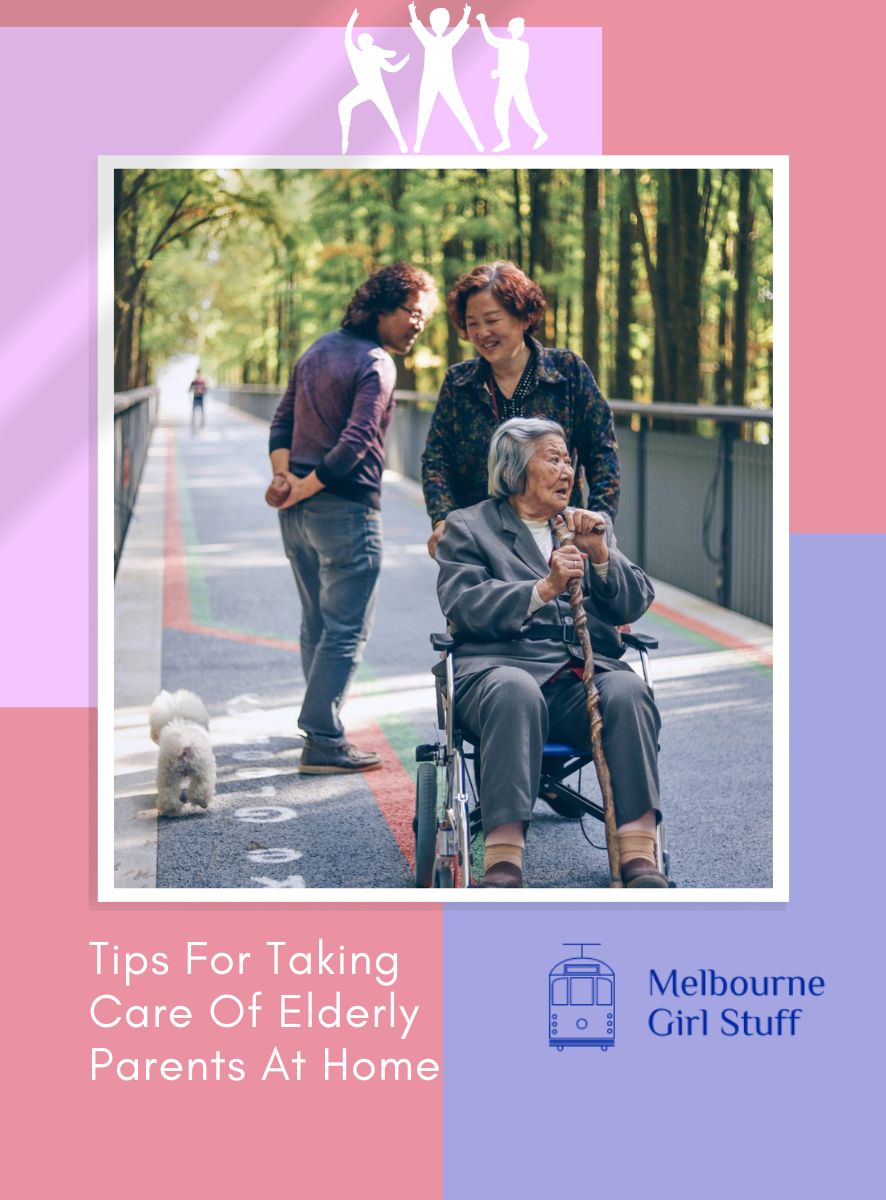Our parents have raised us from birth to adulthood, and while you’ve undoubtedly had more than a few hiccups along the way, extending acts of kindness to them in their senior years can mean the world.
Old age will come to everyone—including the parents that you once thought were invincible. Taking care of them is the least you can do for all the things they’ve gone through to help you set out on your own.
That said, taking care of elderly parents is no small feat. While some elderly parents are independent and can stand on their own, a handful of them could need some extra assistance to get by.
If you’re swarmed with other familial and work-related obligations, it can be tough trying to care for your elderly parents on top of all those things. But with these few tips, it is our hope that elderly care will become a little more manageable in your household.
Have a look at these seven elderly care tips!
1) Get Your Parents Physically Active
Even if your elderly parents don’t have the same energy as before, allowing them to engage in regular physical activity is much better than leaving them holed up in their room all day.
Don’t expect them to handle high-intensity programs immediately—or at all, for that matter. The skeletomuscular system of aged individuals are far frailer than their younger counterparts, so bear that in mind to avoid injuries.
If your elderly parent has lived a sedentary lifestyle for years, slowly build up their stamina with light exercises. Doing moderate-intensity activities for at least 150 minutes a week is considered ideal by most health practitioners. You can try brisk walking, indoor cycling, jogging or gentle aquatic activities like swimming.
2) Be On Top of Their Medications
As we age, the repercussions of our past neglectful habits catch up to us, manifesting in health complications.
In a few fortunate cases, these symptomatic problems can be reversed by temporary medications. But in other cases, these medications are lifelong.
Regardless of the dosage frequency, there’s a staggering amount of pharmaceutical medication that can ease symptoms of cardiovascular disease, kidney disease, and much more.
If your elderly parent is struggling with these diseases, they must do two critical things. One, get a licensed doctor’s diagnosis and prescription. Two, religiously follow their prescription and not miss out on any dosages.
By doing these, you’ll help your parents manage any symptoms, which can consequently slow down the progression of their diseases.
3) Renovate Your Home to be More Senior-Friendly
Mobility is one of the first things that deteriorate in elderly individuals. Take a look around public spaces and you’ll find ramps and railings designed to help the mobility-impaired demographic, such as the elderly.
In a similar vein, making your home more senior-friendly can be a great way to keep the older adults of the household safe from any preventable injuries.
For a weekend, try to install grab bars in bathrooms, ensure that all places in the home are well-lit, and put slip-resistant rugs in slippery places. These little home projects can make all the difference in improving your parent’s quality of life.
4) Hire a Home Care Provider
If placing your elderly parent in an aged care facility like Banfields Aged Care is reserved for future discourse, another option is to assign an in-house home care provider instead.
This individual will help ensure that your elderly parent will remain healthy, safe, and consistently monitored for their well-being. This provider offers invaluable assistance to the elderly, performing an array of tasks for them. For instance, they can cook their meals, plan their medication schedule, or do the laundry for them.
While you’ll be paying extra for their specialised care, the amount of time you’ll save, alongside the peace of mind you’ll achieve, is priceless. Whether your work duties are too much or you’re planning to go on a faraway trip, hiring a home care provider is a great fallback measure for senior care.
5) Monitor Their Nutrition and Diet
Eating a balanced meal is more important than ever the older you become. If you find yourself constantly ordering fast food takeout for your family, strive to switch that out for some fun and healthy alternatives instead.
Ideally, your elderly parent should maintain a diet rich in proteins, rich carbohydrates, fibre, and vitamin-rich produce. Some examples of these include salmon, broccoli, whole grains, and bananas. If you want to go the extra mile, bring your parents to the doctor and have them evaluate your vitamin levels.
This way, you’ll know for sure what food type to focus on the next time you plan for their meal.
6) Keep Their Room Clean
While not all elderly people are immunodeficient, a declining immune function is an eventuality as you accumulate more years to your name.
As such, it’s vital to keep the household neat and free from any unwanted bacteria and odours.
If your parents stay in their room most of the time, make sure that it’s cleaned regularly. Switch the bed sheets every two weeks, clean the walls and floors to prevent dust build-up, and make it a habit to keep their bathroom spotless every week. You’ll be surprised at how much of an improvement this can bring to your parent’s living conditions.
7) Make Communication Between You Easy
In case of emergencies, you’ll want your parents to be able to contact you as quickly as possible. As such, try to make communications between you hassle-free and easy to access.
If your elderly parents easily forget things, have them keep a list containing important emergency contact information. This doesn’t only include your phone number, it may also include your local emergency hotline, the police, and the number of their doctor.
Teach them how to work a phone if they’re not familiar with it. You can also familiarise them with social media sites like Facebook, Viber, or WhatsApp.

